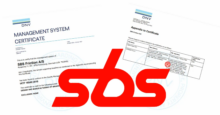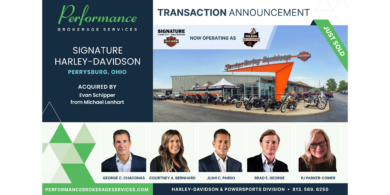Intrusive interstitials: How pop-ups can hurt your SEO
 It’s a common experience: you go to a website and are immediately faced with a pop-up box asking you to sign up for a mailing list, shop featured inventory or take some other action before you can continue on to the site. The pop-ups (called “interstitials” in the tech world) may have once been an easy way to capture leads, but starting in January, they could end up hurting your SEO.
It’s a common experience: you go to a website and are immediately faced with a pop-up box asking you to sign up for a mailing list, shop featured inventory or take some other action before you can continue on to the site. The pop-ups (called “interstitials” in the tech world) may have once been an easy way to capture leads, but starting in January, they could end up hurting your SEO.
Beginning on January 10, 2017, Google will penalize mobile sites with intrusive interstitials. As more and more people use their mobile devices to browse the internet, Google is putting more emphasis on the importance of offering a good mobile experience on your website. Many interstitials are difficult to interact with or dismiss on mobile, so sites that continue using them after the January 10 deadline may see their search engine rank decrease.
According to Google, there are three types of interstitials that will be penalized:
- Pop-ups that cover the main content either immediately or after user browses the page.
- Standalone pages that a user has to dismiss to access the main content.
- Using a layout where above-the-fold content appears to be a standalone interstitial with the main page content below the fold.
These types of interstitial are seen as intrusive and can frustrate users because they block the main content of the page. Because of this, Google’s steps seek to discourage website owners from using these interstitial formats.
There are a few types of interstitials that won’t be affected by these latest changes.
- Interstitials that are in place due to a legal obligation, such as cookie usage or age verification.
- Interstitials that provide log-in access for private content, like email or content that’s behind a paywall.
- Banners that use a reasonable amount of screen space and are easy to dismiss, such as for app installations.
These three types of interstitials are seen as necessary to allow users to appropriately access content or don’t over-complicate the user experience.
To prevent your website from seeing negative consequences when January 10 rolls around, ensure that your mobile website doesn’t use interstitials to collect lead information or advertise products or events at your dealership. Instead, incorporate lead generating calls to action throughout your website (like “Request a Quote” or “Schedule Service”), and use a rotational banner on your home page to advertise your in-store events and featured inventory.
Colleen Malloy is ARI’s director of marketing. Malloy has more than a decade of experience in the powersports industry and previously served as the editor of Motorcycle & Powersports News. ARI creates award-winning software solutions that help equipment manufacturers, distributors and dealers Sell More Stuff! — online and in-store. ARI removes the complexity of selling and servicing new and used inventory, parts, garments and accessories for customers in automotive tire and wheel, powersports, outdoor power equipment, marine, RV and white goods industries. More than 22,000 equipment dealers, 195 distributors and 140 manufacturers worldwide leverage ARI’s website and eCatalog platforms to Sell More Stuff!
Email: colleen.malloy@arinet.com
Phone: 414/973-4323
Website: arinet.com








